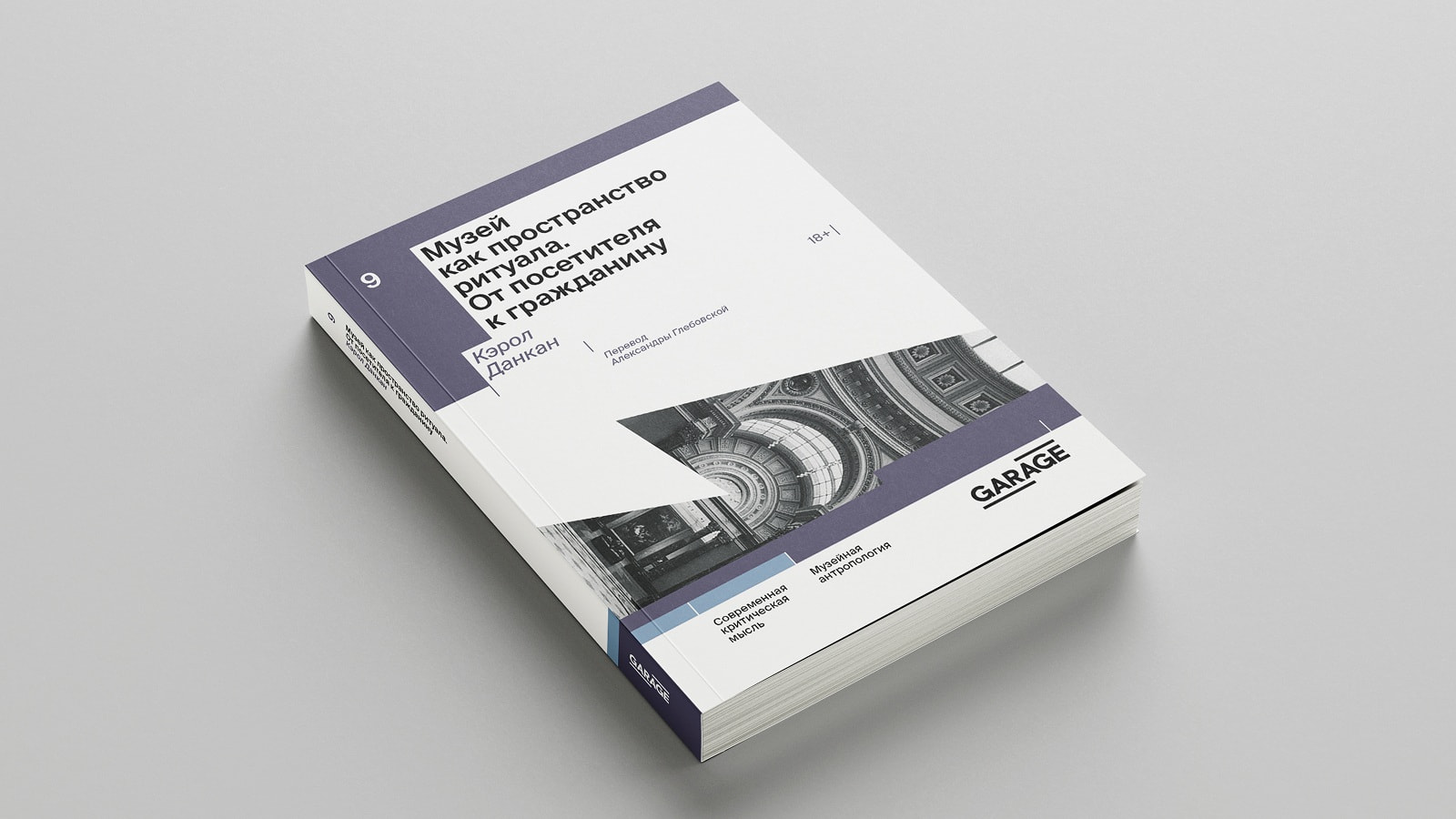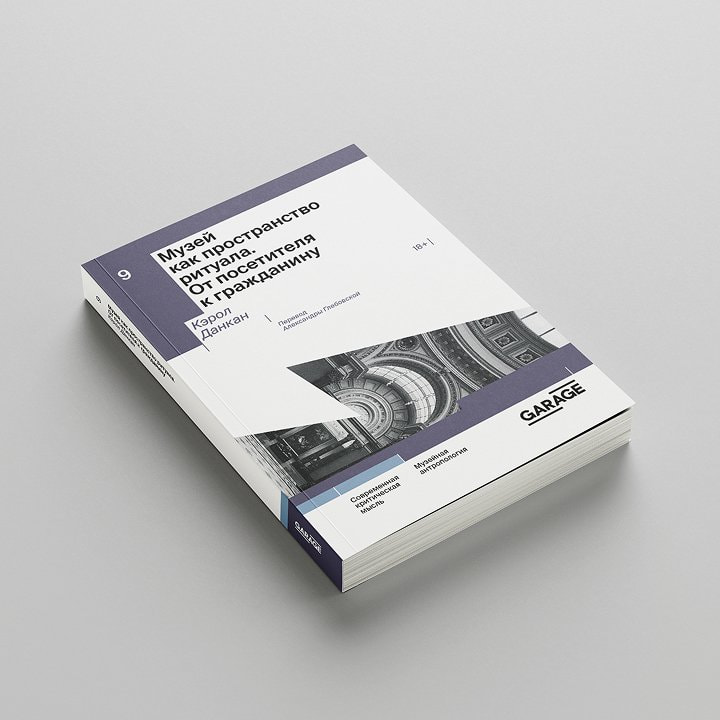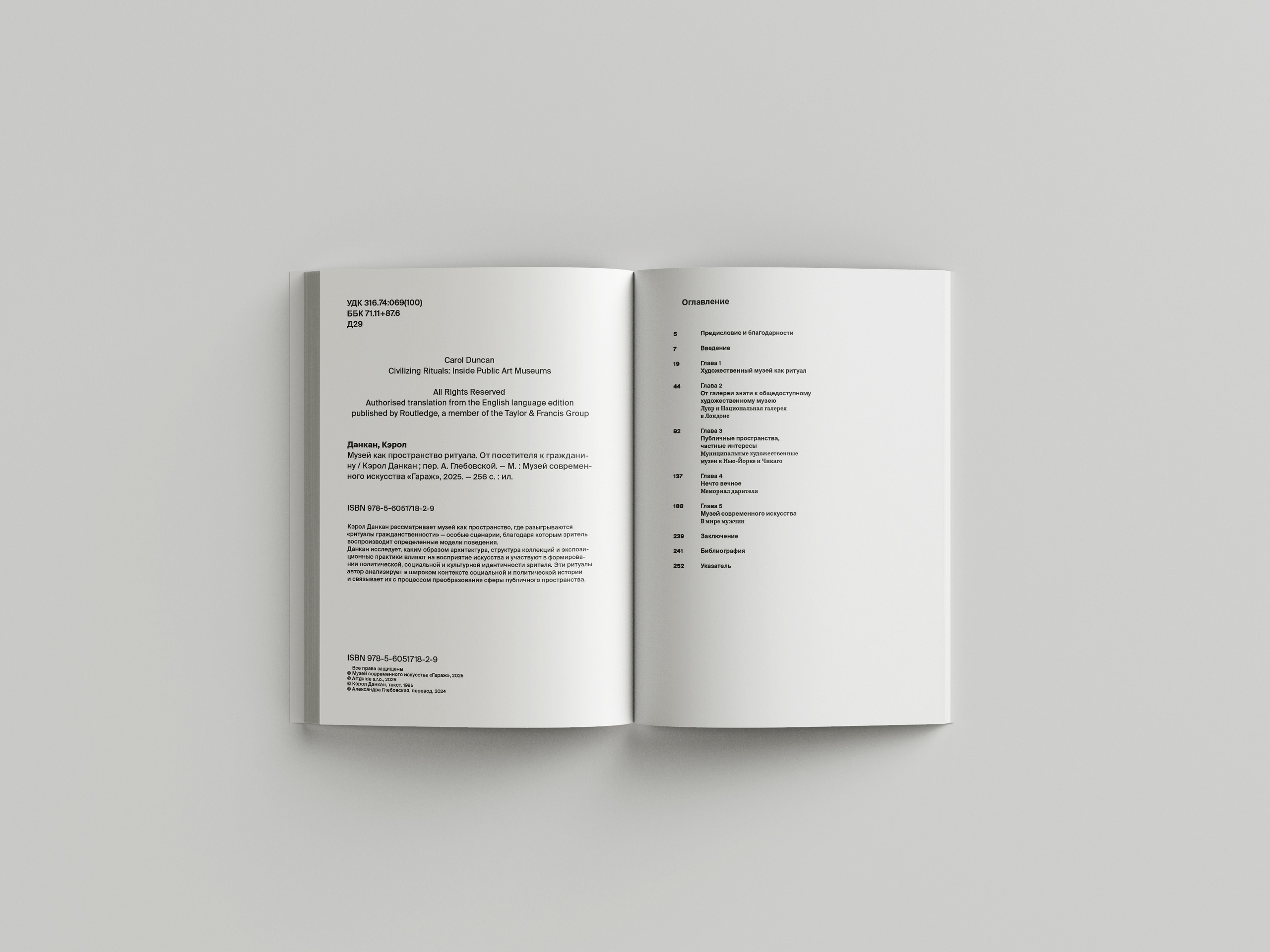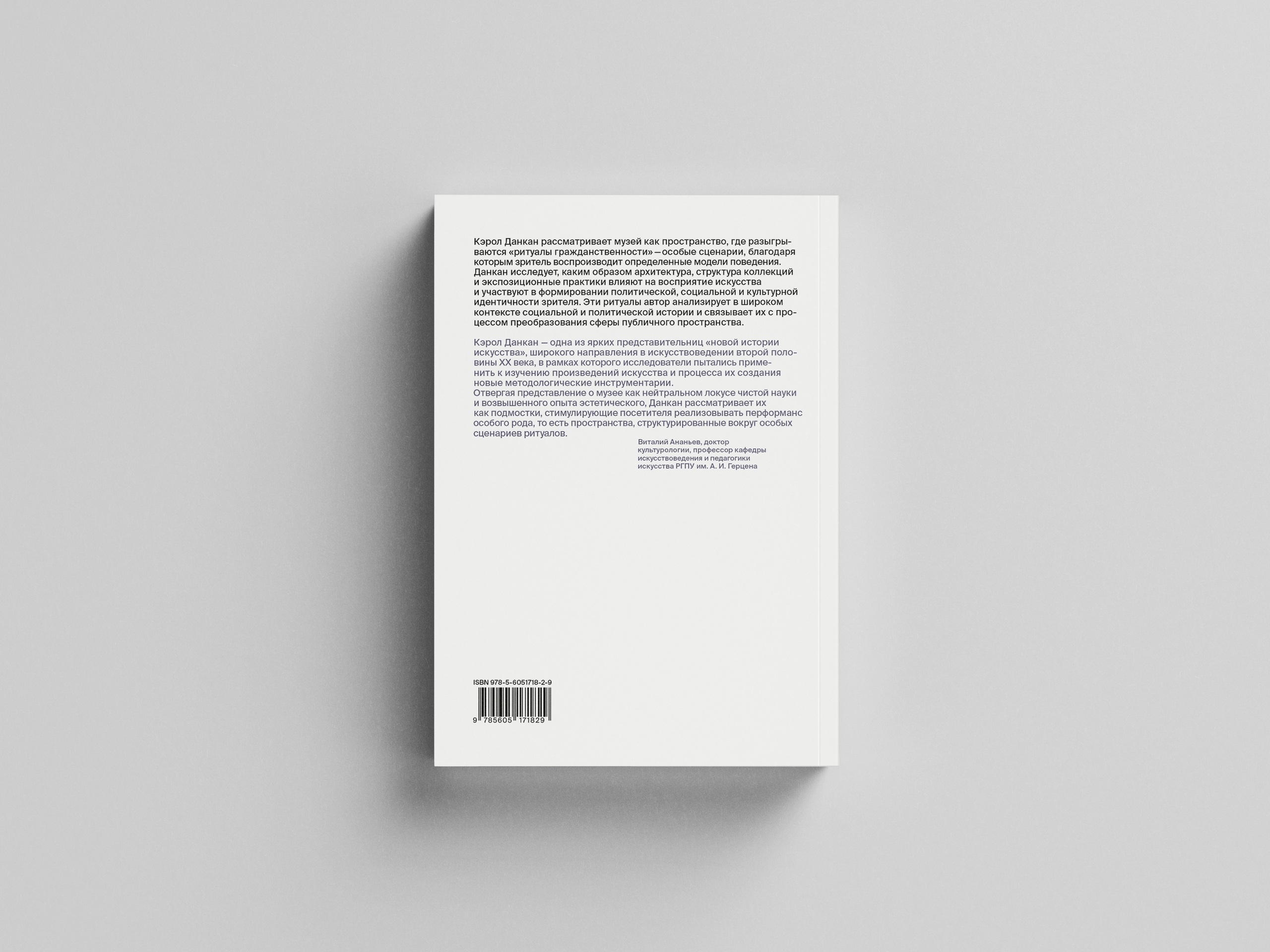Carol Duncan considers the museum as a space where “civilizing rituals” are enacted—scenarios through which the visitor reproduces certain models of behavior.
Duncan explores how architecture, collection structures, and exhibition practices shape the perception of art and participate in forming the political, social, and cultural identity of the viewer. She analyzes these rituals within the broader context of social and political history, linking them to the transformation of public space.
Carol Duncan is an American art historian, a specialist in museum and cultural studies, and Professor Emerita at Ramapo College (New Jersey, USA). She is a prominent representative of the "new art history"—a broad late twentieth-century trend in art history, in which researchers sought to apply new methodological tools to the study of artworks and their production. This approach viewed art not only as an aesthetic phenomenon but also as a sociocultural one. In a series of articles co-authored with Alan Wallach, she was among the first to apply analytical tools from anthropology (in particular, Victor Turner’s work on ritual), Erwin Panofsky’s iconography, and Marxist theory to reveal the hidden nature of universal museums and museums of contemporary art as spaces for the rituals of late capitalism.







